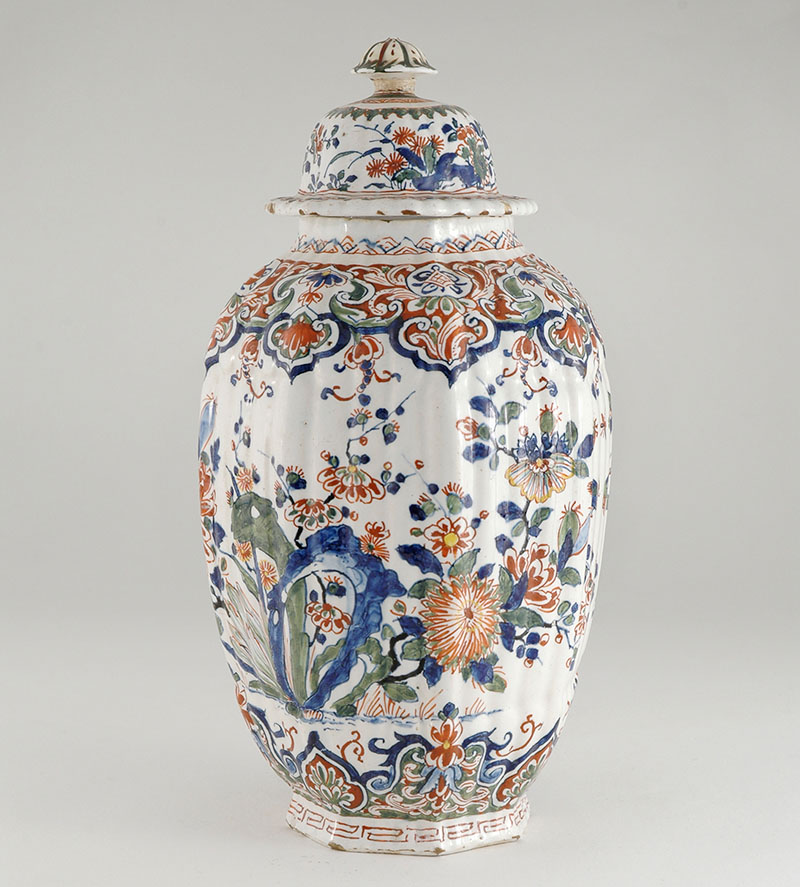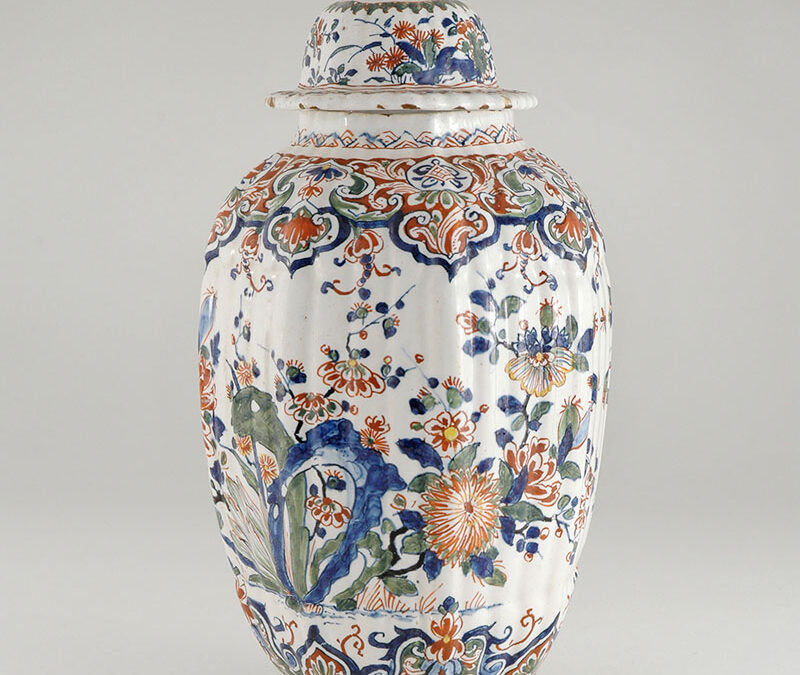
| Maker | Unknown |
| Date of Creation | 1670–90 |
| Location | Made in Amsterdam; Used in Rhode Island |
| Materials | Ceramic |
| Institution | Rhode Island Historical Society |
| Credit Line | N/A |
| Accession Number | 1909.2.1 |
| Photo Credit | Rhode Island Historical Society |
This fluted covered jar in Imari colors (blue, iron red, and green) was made in Amsterdam, brought to and used in colonial Rhode Island by Gabriel Bernon, and passed down through his family until donated to the Rhode Island Historical Society (RIHS) along with his psalm book printed in Amsterdam. The border and Chien Lung flower decorations are a deviation from the Chinese original via Japan and the Netherlands. Gabriel Bernon (1644–1736) was a Huguenot, successful merchant, and prominent citizen of La Rochelle, France. The Edict of Nantes, signed in 1598 by King Henry IV, had granted the Protestant Huguenots religious toleration throughout France ending the religious wars between the Protestants and Catholics. When the Edict was revoked in 1685 by King Louis XIV, Protestantism became illegal, and the violent religious persecution of the Huguenots led to a mass exodus of roughly 400,000 people out of France. Bernon fled France to Amsterdam, where he likely acquired this jar, and then to London, where he formed a society with other Huguenot refuges. Bernon funded their resettlement from London to Oxford, MA, and he settled in Boston. Bernon re-established his mercantile success in the Colonies, first in Boston (1688–97) and then in Newport (1697–1706), Kingston (1712–18), and Providence (1706–12, 1718–36), RI. Bernon manufactured nails, salt, pine rosin, and wash-leather and was involved in shipbuilding, as well as trade relations with England. Bernon embodies two of the founding principles, set forth by Roger Williams, and the Charter of the Rhode Island Colony: religious freedom and separation of church and state. Beyond his financial success and contributions to the colony’s overall success, his enduring legacies are the first Episcopal churches he and others established in Rhode Island: Trinity Church in Newport, St. Paul’s Church in Kingston, and St. John’s Church in Providence.

